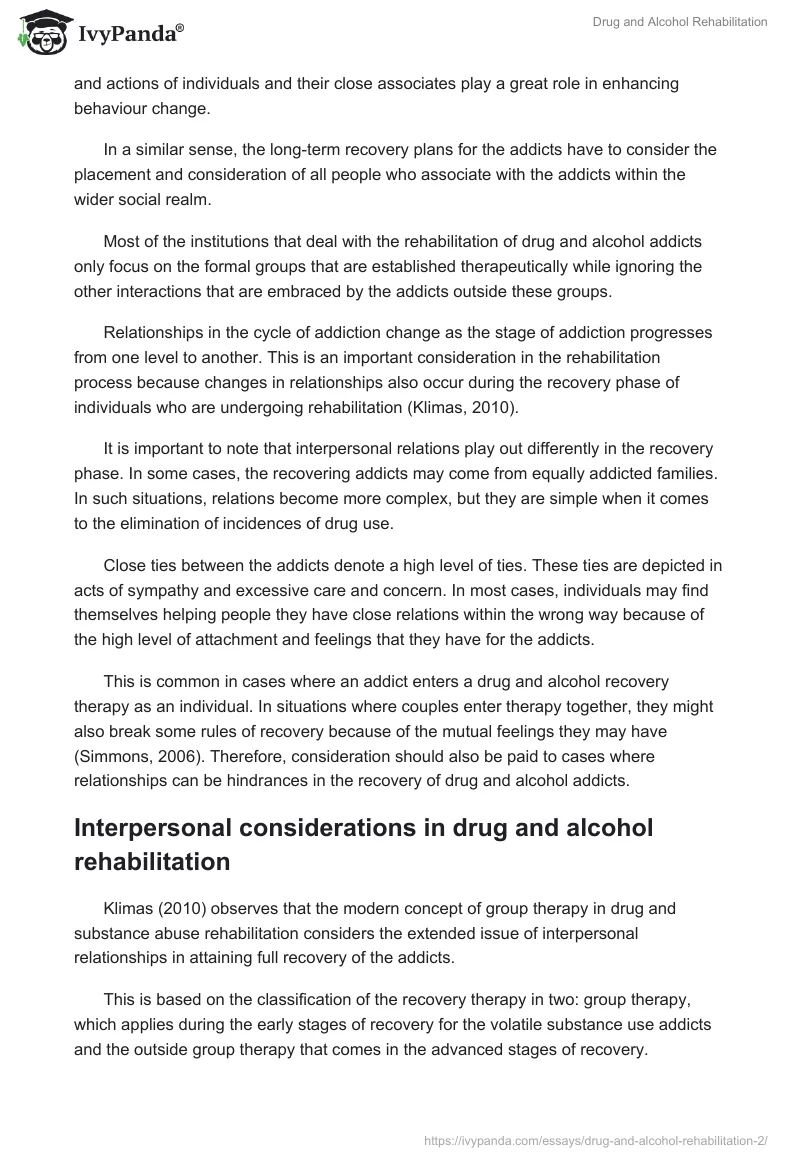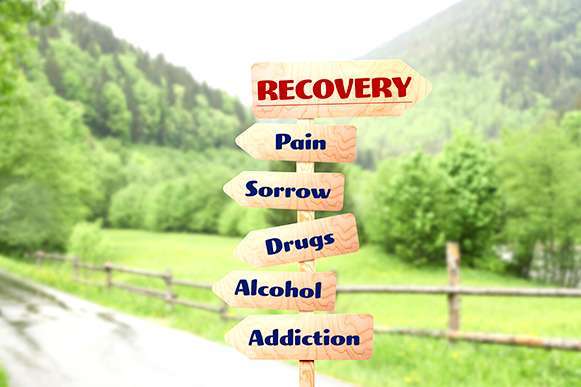The Buzz on Drug Rehabilitation
Table of ContentsThings about Drug RehabilitationThe Single Strategy To Use For Drug RehabilitationExcitement About Drug RehabilitationThe Ultimate Guide To Drug RehabilitationThe 10-Minute Rule for Drug Rehabilitation
This includes addressing the entire person to guarantee that all of the underlying causes and effects of the addiction are correctly taken care of and dealt with. This offers people the devices they require for a complete go back to a happy, healthy, substance-free life. Drug addiction "therapy" is a little bit of a deceptive term it suggests that people with addictions are "all far better" after they have actually gotten some form of therapy.Even individuals with years of effective recuperation have to continue to be mindful of their potential for regression, and they have to utilize the tools they discovered in therapy to avoid it. The word "recovery" additionally implies that a person is being remedied after misbehaving, which is consistent with culture's preconception about dependency. Drug Rehabilitation. Part of the healing process is for individuals with addictions, and their families, to find out that addiction refers biology and not morality
Transitioning from physical and mental addiction to a healthy and pleased means of living is a huge change. It is vital that the steps to medicine recovery be correctly addressed throughout the drug rehab procedure. There are four stages of dependency healing: Dependency evaluation is a specifically vital component of the rehab procedure.
This becomes part of the underlying psychology of addiction, and it reinforced by concerns of arrest for belongings and judgment from friends and family. The assessment process needs getting trust and damaging with that secretive nature. The individual needs to determine which compounds were used and the level of their substance use.
Our Drug Rehabilitation Ideas

For lots of people with dependencies, worry of withdrawal is a major obstacle to escaping their dependency, and that anxiety keeps them from also trying. Withdrawal and medicine detox do not have to be a terrible experience.
For the majority of people with material addiction, their compound usage is no longer regarding getting high. Medication rehabilitation is the process where the deep problems around the addiction are recognized and dealt with.
Unknown Facts About Drug Rehabilitation
Rather, it can be claimed that rehabilitation is the process of discovery, while what occurs afterward is healing. The addicted mind frequently starts to think especially after a time period in abstinence that it is OK to try drinking or utilizing compounds again. This rarely works, and link the vast bulk of individuals who attempt drinking or utilizing drugs again will promptly end up where they were previously.

Sober living homes are an especially efficient approach to aftercare when an individual is released from rehab. Individuals and their households ought to review these choices with their counselors while still in rehabilitation. There are various types of therapy for dependency, based upon the degree of care provided. When selecting the degree of therapy, the choice ought to be based on what will provide the private the finest chance of success in healing not on what the specific intends to do.
This is a bad mix, as it thrusts lots of people to believe that they can quit using medications or alcohol consumption by themselves. Thus, they may hesitate to see this link and confess that they call for a higher degree of treatment, such as inpatient rehabilitation. Cleansing from a material is not the same as treatment for substance dependency.
The Single Strategy To Use For Drug Rehabilitation
During the process of my site medication detox, individuals's minds are jumbled and they really feel physically and emotionally unwell. They are not responsive to any sort of therapy or therapy until their minds clear and they are really feeling better. Even though medical detox makes the process a lot easier, it is best to very first emphasis on getting via the entire detoxification procedure before taking further actions.
Like inpatient treatment, residential therapy offers the therapeutic result of removing individuals from their inefficient way of living and atmosphere and placing them in secure, healthy environments. This enables them to reorient their lives and assumed processes while focusing on distraction-free healing.
People receive restorative solutions on-site throughout the day, but go home or to a sober living facility at evening. The intensity of the daytime therapy will certainly depend on individual needs and the programs offered at the outpatient center. Most people with serious addiction will likely have much better end results in inpatient therapy and rehabilitation.
Not known Incorrect Statements About Drug Rehabilitation
Long-term residential treatment programs usually make use of a healing strategy called the restorative neighborhood (TC). This is a method to re-socializing people whose addiction has actually seriously influenced their capacity to fit right into culture. These consist of individuals with serious criminal behavior, individuals who are homeless, teenagers and people with significant psychological wellness conditions.